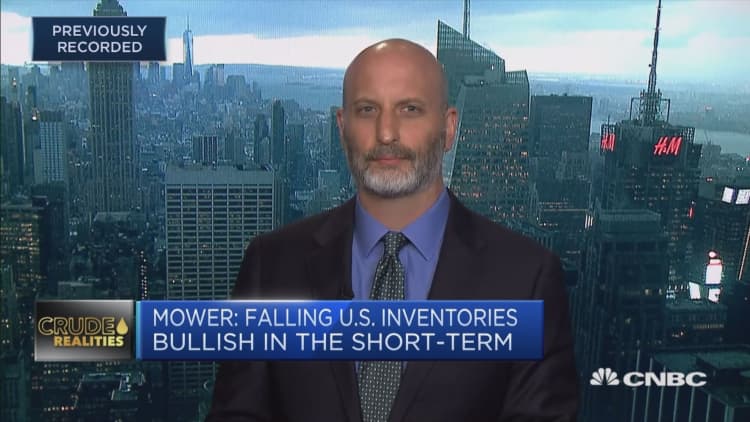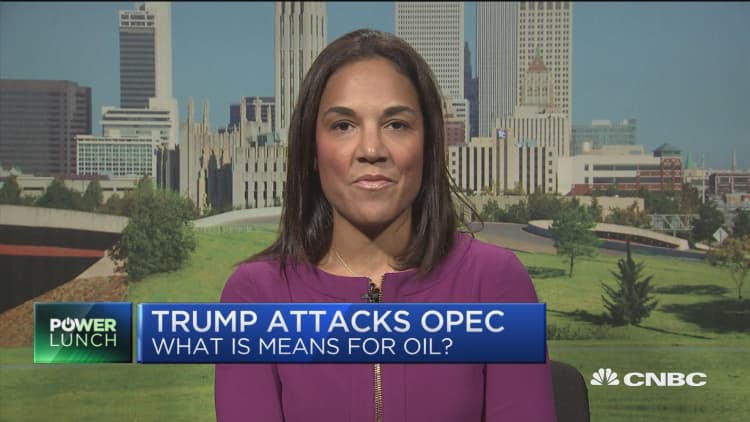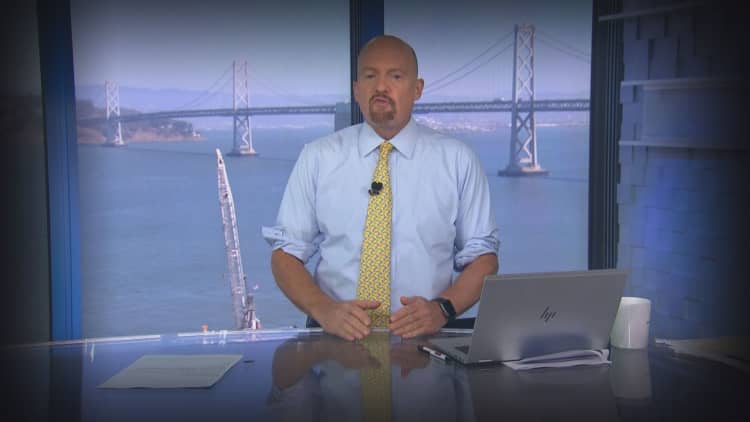
Oil prices eased on Wednesday after U.S. data showed a surprise build in domestic crude inventories, but an impending drop in Iranian exports kept Brent futures above $80 a barrel and on track for a fifth straight quarterly gain.
Brent crude futures were down 39 cents at $81.48 a barrel by 2:26 p.m. ET, after rising to its highest since November 2014 in the previous session. U.S. crude futures ended Wednesday's session down 71 cents, or 1 percent, at $71.57 a barrel.
U.S. crude inventories rose by 1.9 million barrels in the week to Sept. 21, according to U.S. Energy Information Administration (EIA) data. Analysts had expected a decrease of 1.3 million barrels.
Refinery crude runs fell by 901,000 barrels per day, EIA data showed.

"A renewed rise in Cushing, Oklahoma, inventories and a rise in domestic crude oil production added to the bearish tone of the report," said John Kilduff, a partner at Again Capital in New York.
Still, the oil market is bracing for a hit to global supplies from renewed U.S. sanctions on Iran. Brent remains on course for its fifth consecutive quarterly increase, the longest stretch since early 2007 when a six-quarter run led to a record-high price of $147.50 a barrel.
Several big buyers of Iranian crude, such as a number of Indian refiners, have signaled they will wind down their purchases, yet the exact impact of the loss of Iranian barrels on the global market balance is not clear.
U.S. officials, including President Donald Trump, are trying to assure consumers and investors that enough supply will remain in the oil market while requesting producers raise their output.
"We will ensure prior to the re-imposition of our sanctions that we have a well supplied oil market," Washington's special envoy for Iran, Brian Hook, told a news conference at the United Nations General Assembly on Tuesday evening.
In an earlier speech at the UN, Trump reiterated calls on OPEC to pump more oil and stop raising prices. He also accused Iran of sowing chaos and promised further sanctions on the country.
The so-called 'OPEC+' group, which includes the world's biggest producer Russia, met over the weekend but did not see the need to add new output as the market is well-supplied currently.

"The lack of new production growth guidance by OPEC does not reflect a desire to let prices appreciate meaningfully further, but rather the historical pattern of OPEC responding to rather than front-running production losses," Goldman Sachs said in a report.
"We continue to expect that the decline in Iran exports will reach 1.4 million barrels per day, and while it is occurring faster than we had previously expected, we continue to expect it to remain offset by a faster ramp-up in production from other producers."
The investment bank reiterated its view that "Brent prices will stabilize back in their $70-80/bbl range into year-end."
Commerzbank said in a note that "the latest rise in oil prices is due primarily to Trump himself. ... he has focused the market's attention on the Iran sanctions again, even though the market is adequately supplied at present thanks to the increase in OPEC and Russian production."
A Nigerian oil industry official said OPEC will act to balance the market after oil prices hit a four-year high, but its options may be limited by available spare capacity.

